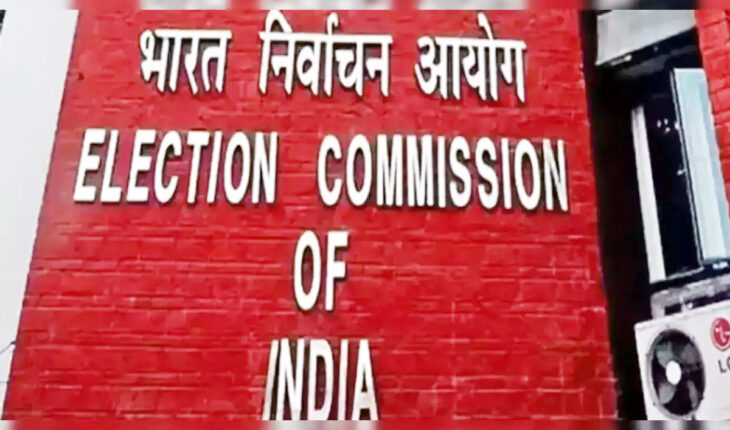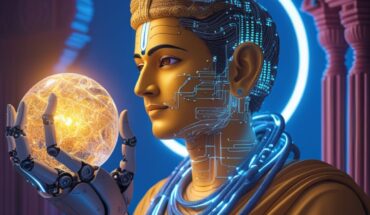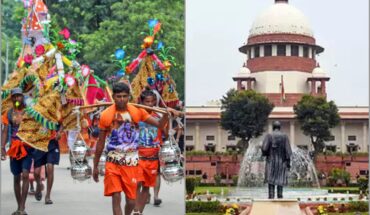Manjari Katju explains why Election Commission’s appointment process is in tight spot as govt and judiciary clash
Of late, the Election Commission of India (ECI) has been a focal point of differences between the government and the judiciary. This time, the clash of opinions is over its appointment.
The Supreme Court of India, in a judgment on March 2, directed that the Chief Election Commissioner (CEC) and the Election Commissioners (EC) will be appointed by the President of India based on the advice of a committee made up of the Prime Minister, the Leader of the Opposition in the Lok Sabha or the leader of the single largest Opposition party and the Chief Justice of India (CJI). This judgment of the Constitution Bench was a major step towards broadbasing the ECI and enhancing its constitutional status. Article 324 of the Constitution contains a provision for such a law to be enacted by Parliament.
The significance of this judgment also lies in the fact that this was a unanimous judgment of a five-judge Bench. So far, the top officers of the ECI have been appointed by the President of India on the advice of the central government. However, the government of the day, in an unambiguous move, introduced a Bill in the Rajya Sabha on August 10 which if passed will overturn this verdict.
The Bill seeks to replace the Chief Justice of India from the high-powered selection committee, meaning the committee will be made up of the Prime Minister (Chairperson), Leader of the Opposition in the Lok Sabha (Member) and a Union Cabinet Minister to be nominated by the Prime Minister (Member).
The government, through this Bill, has taken the Supreme Court head on, making it clear that it wants greater weightage in the appointments of the top election officials — and thus a greater hold over the institution. Experience and research show that incumbent governments, especially those with authoritarian streaks, do not usually do away with democratic institutions but, instead, relentlessly work towards making them pliant. The institutional structures remain but are drained of their substance. And, in this case, one is dealing with a matter of electoral winnability and a consolidation of state power.
The procedure of appointments of the CEC and the ECs has seen much debate in policy and political circles ever since the Constituent Assembly debates and much has been written about it.
A suggestion during the Constituent Assembly Debates was that the appointment of the CEC should be subject to confirmation by two-thirds majority in a joint session of both Houses of Parliament (Constituent Assembly debates, June 15, 1949). However, Parliament was entrusted with the charge of making appropriate laws on the matter.
The V.M. Tarkunde Committee appointed by Jayaprakash Narayan in 1975, the Dinesh Goswami Committee on electoral reforms set up by the then Prime Minister, V.P. Singh, in the 1990s, and the second Administrative Reforms Commission in its fourth report in 2009 among others made recommendations that the appointments of members of the ECI should be more broad based (through a collegium) than leaving this solely to the government on whose advice the President made these appointments.
In 2006, a suggestion was made by a former CEC, B.B. Tandon, to the former President of India, A.P.J. Abdul Kalam (when both were in office) that a seven- member committee headed by the Prime Minister should choose the CEC and the other ECs. The committee should include the Lok Sabha Speaker, the Leaders of the Opposition in the Lok Sabha and the Rajya Sabha, the Law Minister, the Deputy Chairperson of the Rajya Sabha and a judge of the Supreme Court nominated by the CJI. The Bharatiya Janata Party (BJP) had supported such a suggestion and argued for a representative collegium, which included the CJI to appoint the apex electoral officials. BJP General Secretary Arun Jaitley in a press release on the CPI(M)’s suggested electoral reforms in 2006 had said, ‘Any monitoring of Election Commission by Government or their nominee will be destructive of the independence of Election Commission’.
In 2012, senior leader of the BJP and former Deputy Prime Minister L.K. Advani reiterated the argument that such a collegium should be formed with the Prime Minister as its chairman, with the CJI, the Minister of Law and Justice and the Leaders of the Opposition in the Lok Sabha and the Rajya Sabha as its members. He argued that the prevalent system, whereby members to the ECI are appointed by the President, solely on the advice of the Prime Minister, does not inspire confidence among the people.
Held in high regard
The ECI has been held to be a reliable, responsible and trustworthy institution by the people of India. Handling elections that involve about 900 million voters (2019 election data) through a machinery of 11 million personnel in a setting of economic hardship and inequalities is a remarkable feat. However, going soft on the ruling party or its ideology, as the perception is, whether this has to do with election schedules, electoral speeches, alleged hateful propaganda, electoral rolls or other kinds of malpractices, is eroding not only its own autonomy but also people’s trust. Nevertheless, the point remains that the present regime still sees the ECI as an institution with autonomy. And this autonomy does not gel with its goals. It would instead like a firmer grip on the ECI through statutory means.
Manjari Katju teaches at the Department of Political Science, School of Social Sciences, University of Hyderabad






